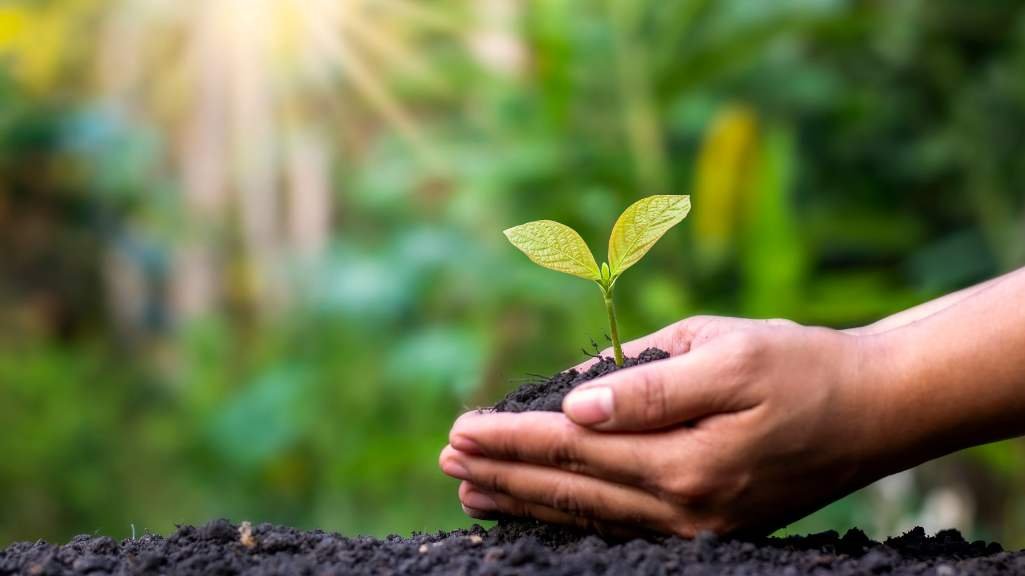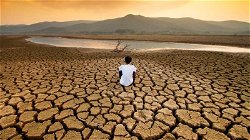Negative Impact of Monocropping: Soil Degradation, Water Waste, and Pesticides
Adina Anderson
. 2 min read
The practice of planting only a single crop on a given plot of land year after year is known as monocropping, also spelled monoculture. In addition to crop production, the practice of monocropping can also be applied to forestry, aquaculture (fishing), dairy farming, ranching, and even lawn care. With the advent of modern technology, various apps have been developed to assist in managing specialized agricultural activities, including monocropping. For instance, although a single patch of grassy lawn (which is, in essence, a monocropped landscape) might not take up a significant amount of space, turfgrass as a whole is the crop that receives the most irrigation in the United States.

Drawbacks of a Single-Species Environment
1. Destroys Soil Nutrients
Naturally, the soil will have certain functions and components, including nutrients. The practice of monoculture, in which only one variety of crop or animal breed is cultivated, eradicates all of these functions because it restricts farming to just one species. Due to the lack of crop diversity that encourages insect and soil microbe biodiversity, there is no variety of insect and soil microorganism species.
2. Soil degradation
Planting the same species year after year on the same piece of land depletes the nutrients in the soil and the microorganisms that are necessary for maintaining biodiversity and the fertility of the soil. If you take those two factors and add in the roots of just one species, you have a recipe for erosion. The most obvious solution is to increase the amount of fertilizer that is used.
3. The Waste of Water
Because monoculture fields rely on only one type of root for water retention, farmers are forced to increase the amount of water they use for irrigation, build dams, or take water from rivers that should be allowed to flow freely. This has a devastating impact on the biodiversity as well as the critical balances that are required for ecological health.
4. Vulnerability to Insect and Animal Pests
When a farmer chooses to practice monocropping, he or she should be prepared to fight weeds and pests because this farming method is susceptible to attacks from these types of organisms, which is why a greater quantity of pesticides is required to both prevent and eliminate these problems. The kind of food or crops that pests eat are grown at a specific time and also every year.
5. An increased Consumption of Pesticides
Monoculture crops have a greater risk of being affected by blight or pests due to the reduced biodiversity of the area, which allows these dangers to spread through the region at a faster rate. As a direct result of this, farmers have been spraying their crops with increased quantities of pesticides and herbicides.
The Brutal Reality of Monoculture
The agricultural practice of growing only one crop on the same plot of land year after year, rather than rotating it with other crops as part of a rotational system, is known as monocropping. Monoculture is a farming method that is frequently used to cultivate three different crops: corn, soybeans, and wheat. Monocultures don't exist in nature. Even in natural ecosystems that have the appearance of being dominated by a single plant or tree species.
Conclusion
Monocropping has become a widespread agricultural practice, but it is not without its drawbacks. The elimination of crop diversity and the subsequent depletion of soil nutrients and microorganisms lead to soil degradation and erosion. Additionally, the reliance on a single root system for water retention results in the waste of water and impacts biodiversity and ecological health. Monoculture farms are also more vulnerable to insect and animal pests, leading to increased pesticide use that contaminates the soil and groundwater.
More Stories from
The Impact of Climate Change on Human Health: Risks and Challenges
This article discusses the various ways in which climate change is affecting human health, including the disruption of food systems etc.
Unveiling India's Volcanic Secrets: A Geological Overview
Explore India's unique volcanic history and the enduring forces of nature that continue to captivate scientists and adventurers alike.
Zero-Waste Living: Practical Tips for Reducing Environmental Impact
Discover the power of zero-waste living as this article offers practical tips and actionable advice for reducing your environmental impact.
Eco-Friendly Practices: How Individuals and Businesses Can Make a Difference
Discover the Power of Eco-Friendly Practices: Learn how individuals and businesses can contribute to a greener world by adopting sustainable measures.









.png?width=40&aspect_ratio=1:1)


.png?width=40&aspect_ratio=1:1)